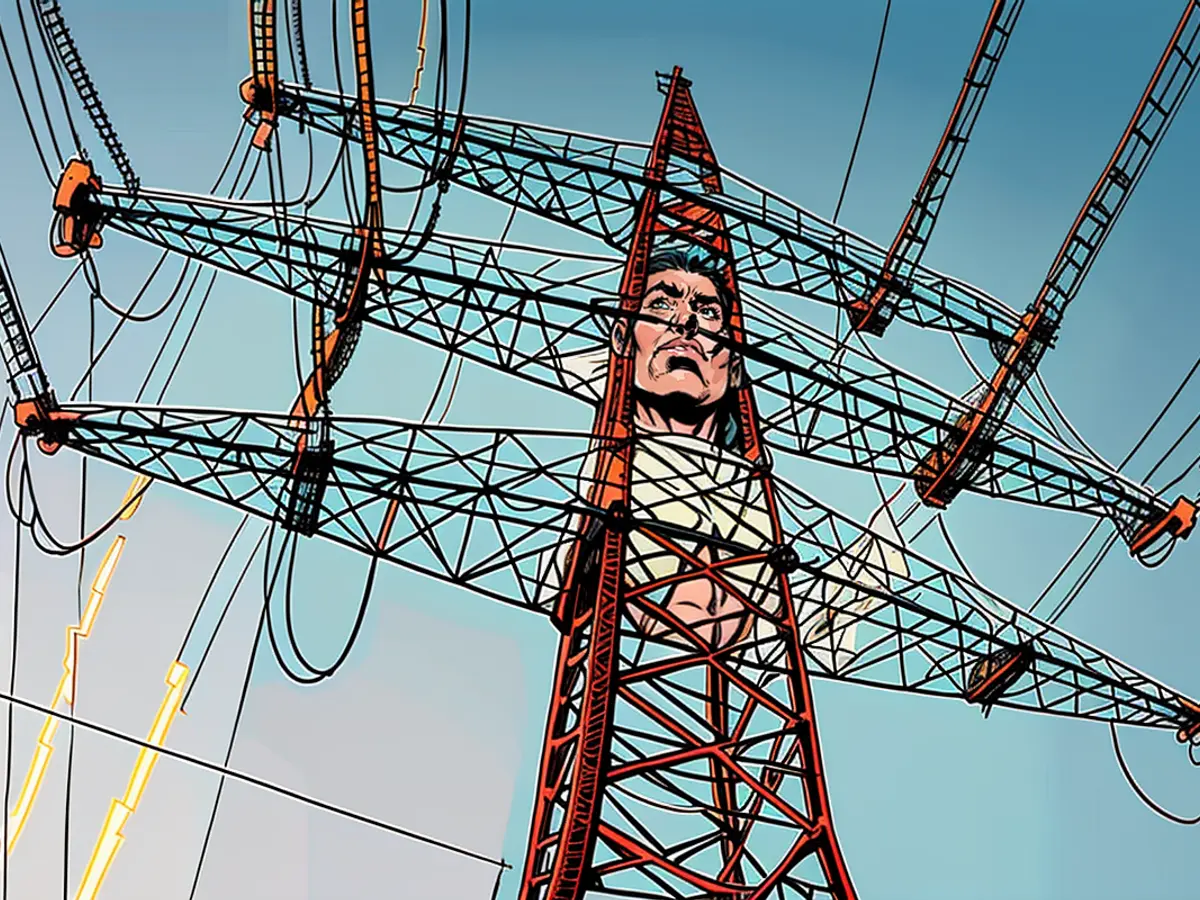"Costs could be substantially reduced"
To accelerate the energy transition, two new power lines are to be built faster. The Bundestag has given the green light for this now. The decision for underground cables is expected to increase acceptance in the population according to environmental economist Andreas Loeschel, but it will have a price.
The Bundestag has approved legislative projects aimed at accelerating the expansion of renewable energy. Through a change in the Federal Requirements Plan, wind energy from the sea is to be better distributed throughout the country via the grid. Concretely, two new power lines are to be built faster.
"The faster inclusion of high-voltage power lines in the Federal Requirements Plan is very welcome," says environmental economist Andreas Loeschel in response to an inquiry from ntv.de. "There is still a pressing need for action when it comes to the construction and expansion of grids for electricity and hydrogen." In addition, the expansion of the grids is one of the central prerequisites for the successful expansion of renewable energies and for achieving climate protection targets.
The NordOstLink is to transport electricity from Schleswig-Holstein to Mecklenburg-Vorpommern in the future. With the Rhein-Main-Link, electricity is to be better transported from Lower Saxony to South Germany. Exactly when construction can begin depends on the plans of the Federal Network Agency and the transmission network operators. With the decision of the Bundestag, construction can begin as soon as possible.
The expansion of the lines is expected to cost around 47 billion Euros according to the draft law. In connection with the investment, electricity costs for consumers could increase. According to the draft, network charges, which are passed on to all electricity customers, are to increase by approximately 80 Euros net per year due to the project.
Loeschel points out that in the future, even more consideration will have to be given to costs when expanding the network. The now approved power lines are planned as underground cables. "The costs of network expansion could be significantly reduced if, in the implementation of direct current projects, the use of overhead power lines is considered instead of underground cables in the future," Loeschel demands. The previous decision for underground cables is expected to have only a minor effect on acceptance. "This effect is hardly noticeable."
Beforehand, TransnetBW, Tennet, and 50Hertz, three of the major transmission network operators, had already suggested in a report in the "Sueddeutsche Zeitung" that the obligation to use underground cables be reconsidered. The energy supplier EnBW from Karlsruhe also supports the switch from underground cables to overhead power lines for the new projects "Ostwestlink", "Nordwestlink", and "Suedwestlink". "This could halve the costs," says Financial Director Thomas Kusterer recently to ntv.de. "Overhead power lines are also simpler and faster to build. We simply can't afford to miss out on efficiency. After all, we can only spend each Euro once."
To achieve the climate goals in Germany, it is necessary to continue investing massively in the conversion of the energy system. "Mobilizing the necessary capital for the energy transition and enabling investments is perhaps the greatest challenge of the coming years," so Kusterer. "Acceptance of the energy transition could suffer significantly if network expansion costs unnecessarily increase."
The German Bundestag has approved legislative initiatives aimed at boosting the development of renewable energies, including the construction of new power lines to improve the distribution of wind energy from the sea. These approved projects are expected to see significant expenses, with network charges potentially increasing by around 80 Euros per year for consumers.
Amidst these costs, environmental economist Andreas Loeschel advocates for more considerations on costs when expanding the network, suggesting that future direct current projects could potentially use overhead power lines instead of underground cables, which could significantly reduce expenses.








